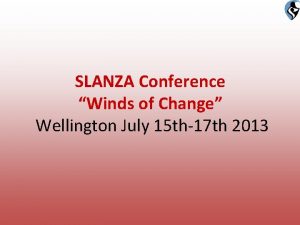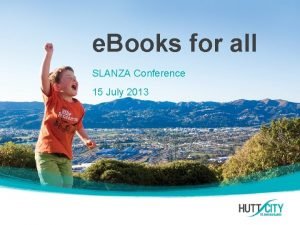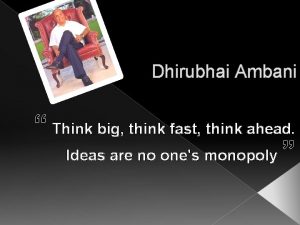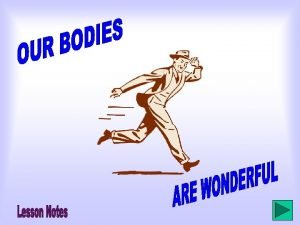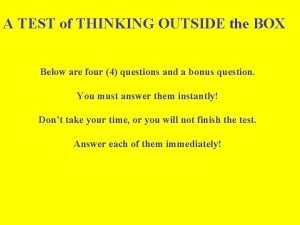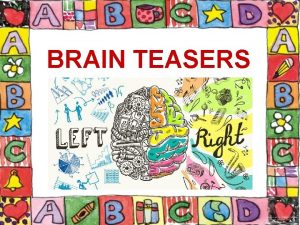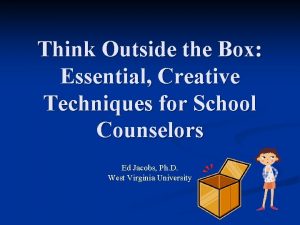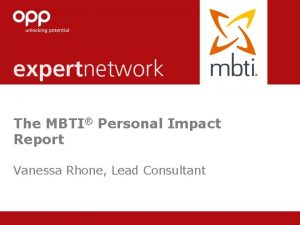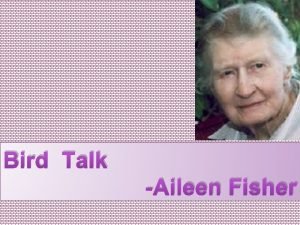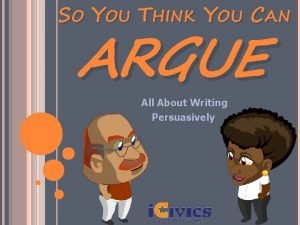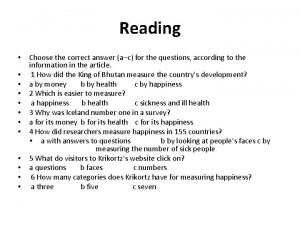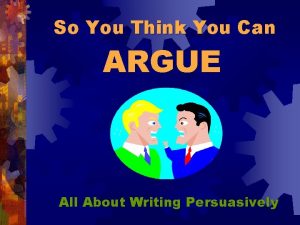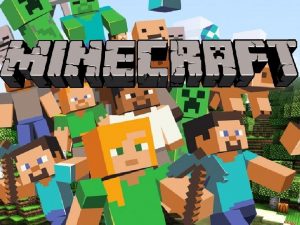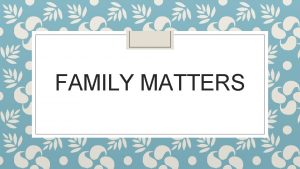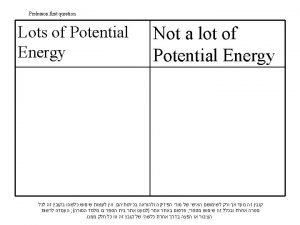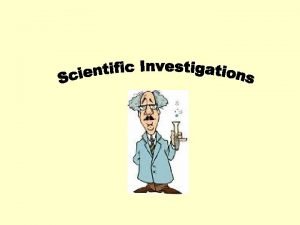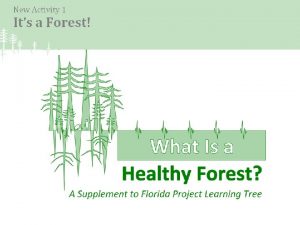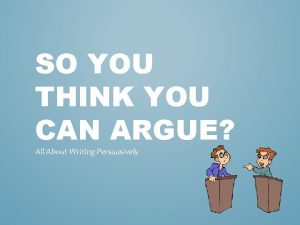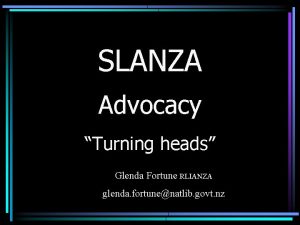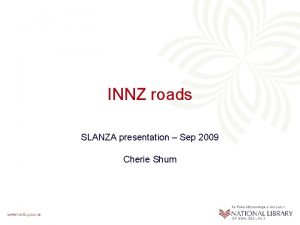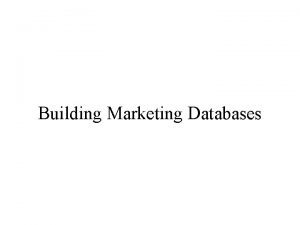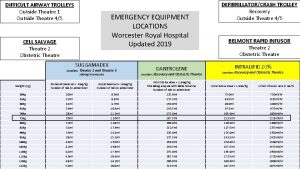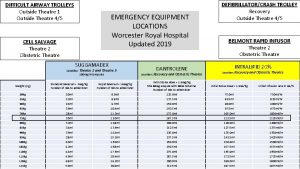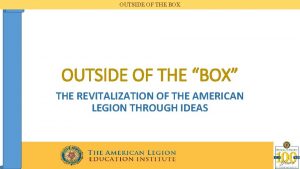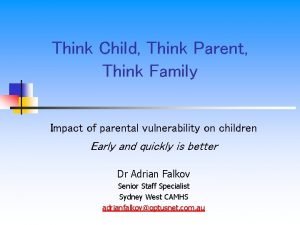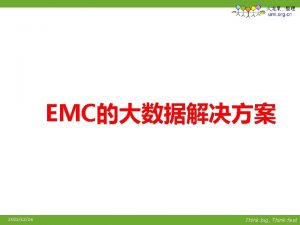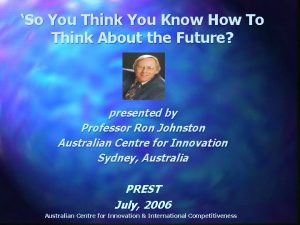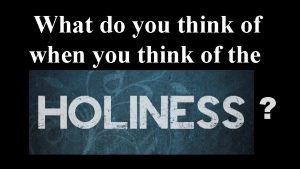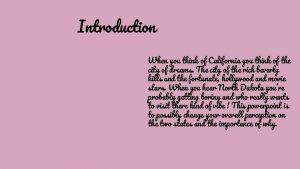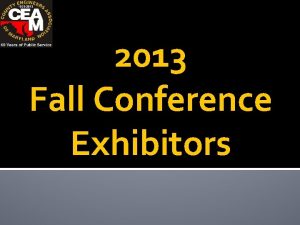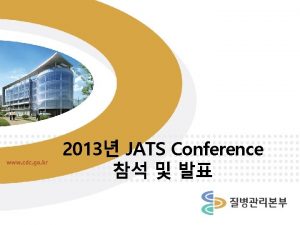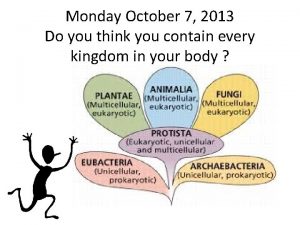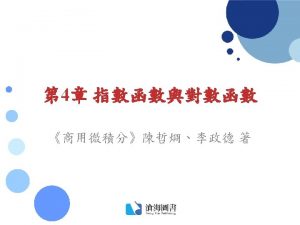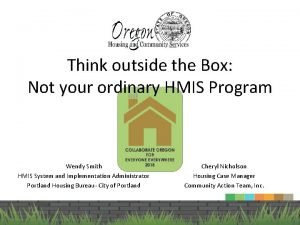COPYRIGHT YOU SLANZA Conference 2013 THINK OUTSIDE THE

































- Slides: 33

COPYRIGHT & YOU! SLANZA Conference 2013

THINK OUTSIDE THE BOX

Brainstorm! What do you love about being a librarian?

What do librarians, teachers and publishers have in common?

What do librarians, teachers and publishers have in common?

COPY - RIGHT The Copyright Act simplified.

Understanding Copyright Striking the Right Balance Rightsholders: Authors Artists Publishers Musicians © Content Users: Education facilities Libraries Businesses Individuals

Copyright Definition – simplified! Copy – “the imitation or reproduction of an original” Right – “in accordance with what is good, proper, or just” - Collins World English Dictionary

When does Copyright Apply? • It is automatic! • The © symbol is only a reminder • No registration required in NZ • Automatically applies to original writing, computer programmes, drama, music, art, sound recordings, films, TV and radio broadcasts

COPYRIGHT OWNERSHIP Who owns the rights to a piece of published work?

Copyright Ownership Who owns copyright? • The person who commissioned the work or • The creator(s) of the work • If created by an employee, the employer owns the copyright • If created by a government agency, it is considered ‘Crown Copyright’ and the government owns the rights

Copyright Ownership A copyright owner has the exclusive right to: • Copy • Publish • Perform • Show • Broadcast or • Authorise…. the use of their work

What would happen if Copyright didn’t exist?

Hairy Mc…Who? • Here’s a little guy you might know…. . www. artgallery. org. nz © Lynley Dodd • If we didn’t have copyright protection for Lynley Dodd, we may not have met…

ACCESSING COPYRIGHT When and how much are you allowed to copy?

Duration of Copyright Literary, dramatic, musical and artistic works • Life of the author plus 50 years after their death Computer programmes, films and sound recordings • 50 years from the year of creation / first broadcast Published editions • 25 years from the end of the year in which it was first published

When can you copy? The Act allows you to copy from published material for; • criticism, review or news reporting (fair dealing) • research or private study • educational purposes • public administration

How much can you copy? Section 44 – Education • Teachers can make a single copy of an entire book when: • They own the original hardcopy • The copy is for lesson planning (it can not be shared with students) • Teachers can make multiple copies of up to 3% or 3 pages of a book when: • They own the original hardcopy • The copying is to share with students enrolled on the course • All copying for examination purposes is permitted (Section 49)

How much can you copy? Section 51 – Libraries • A library can make a single copy of an entire book when: • They own the original hardcopy • When it is not practicable to purchase a copy to fulfil a purpose • The copy can: • Be in addition to the original • In replacement of (when the original is damaged)

Digital Copying - Education Teachers can scan and share content electronically with students when: • They own the original hardcopy • They include referencing information in the saved title • The material is only available to students via a password protected site

Digital Copying - Libraries A library can make a digital copy when: • They own the original hardcopy • The hardcopy is at risk of being damaged or destroyed • It is not practicable to purchase another hardcopy • The copy replaces the original • The copy is not made publically accessible (unless the title is specifically requested for research purposes)

QUIZ TIME!

Quiz time! Working in peers answer the following questions: 1. When is a librarian allowed to copy an entire book? 2. When making multiple copies a) What % are you allowed to copy? b) How many copies are you allowed to make? 3. What are the rules when sharing material electronically with students?

Answers… 1. When is a librarian allowed to copy an entire book? - For lesson planning purposes - When it is not practicable to purchase a copy to fulfil a purpose - When the hardcopy is at risk of being damaged or destroyed

Answers… 2. When making multiple copies – a) How much are you allowed to copy? 3% or 3 pages, which ever is greater. a) How many copies are you allowed to make? You can make one copy per student.

Answers… 3. What are the rules when sharing material electronically with students? - You must own the original hardcopy - Include referencing information in the saved title - Only make it available to students via a password protected site

COPYRIGHT LICENSING How to play by the rules and maximise resources

Who is CLNZ? • Copyright Licensing New Zealand • Not for profit organisation • Sell licenses to education facilities & businesses • Unlock the Copyright Act

What are Copyright Licenses?

Unlock the Copyright Act The law let’s you use 3% or 3 pages from a book allows you to legally use 10% or an entire chapter from a book


Benefits of Licensing A CLNZ education license enables you to: • gain advanced permission to copy, scan and share copyright protected material • minimise the risk of copyright infringement • maximise existing and any future resources

Questions?
 Slanza conference
Slanza conference Epukapuka
Epukapuka Dhirubhaism
Dhirubhaism If you think you can you can poem
If you think you can you can poem Thinking outside the box questions
Thinking outside the box questions Pneumonoultramicroscopicsilicovolcanoconiosis
Pneumonoultramicroscopicsilicovolcanoconiosis Think outside the chair
Think outside the chair Mbti personal impact report
Mbti personal impact report Agile 2013 conference
Agile 2013 conference Kraemer copyright conference
Kraemer copyright conference A little bird by aileen fisher
A little bird by aileen fisher Think family ni
Think family ni Have a daughter so you can argue
Have a daughter so you can argue Read and choose the correct answer
Read and choose the correct answer Alan and susie an argument
Alan and susie an argument Minecraft facts
Minecraft facts What comes to mind when you hear the word family
What comes to mind when you hear the word family You have more potential than you think
You have more potential than you think What do you think of when you hear the word science
What do you think of when you hear the word science What do you think of when you hear
What do you think of when you hear You can argue
You can argue Hình ảnh bộ gõ cơ thể búng tay
Hình ảnh bộ gõ cơ thể búng tay Ng-html
Ng-html Bổ thể
Bổ thể Tỉ lệ cơ thể trẻ em
Tỉ lệ cơ thể trẻ em Chó sói
Chó sói Tư thế worms-breton
Tư thế worms-breton Hát lên người ơi alleluia
Hát lên người ơi alleluia Môn thể thao bắt đầu bằng chữ f
Môn thể thao bắt đầu bằng chữ f Thế nào là hệ số cao nhất
Thế nào là hệ số cao nhất Các châu lục và đại dương trên thế giới
Các châu lục và đại dương trên thế giới Công thức tính độ biến thiên đông lượng
Công thức tính độ biến thiên đông lượng Trời xanh đây là của chúng ta thể thơ
Trời xanh đây là của chúng ta thể thơ Mật thư tọa độ 5x5
Mật thư tọa độ 5x5
